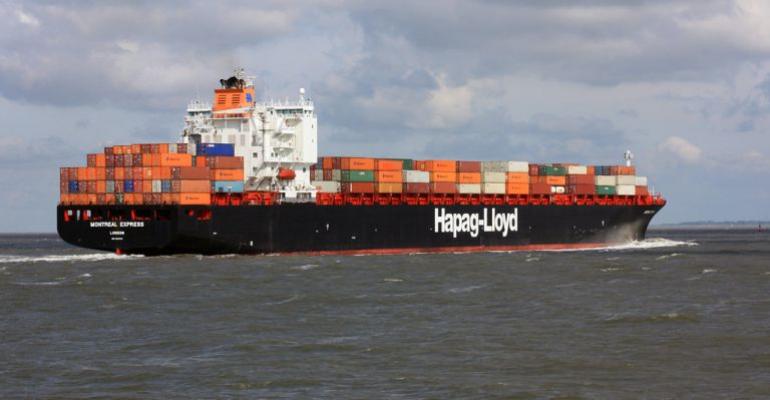Hapag-Lloyd said it has tested a blend of 80% low sulphur fuel oil (LSFO) and 20% biodiesel based on cooking oils and fats to create a so-called B20 fuel, used for the first time on the 4,402-teu Montreal Express.
The biodiesel generates up to 90% less CO2 emissions than conventional bunker fuels.
“By the end of this year, we want to have reduced our specific CO2 emissions by 50% compared to the reference year 2008. Biofuels like ‘B20’ can help us reach this target. This is because, in addition to having a low sulphur content, the fuel also emits less climate-damaging CO2 during combustion,” explained Jorg Erdmann, senior director sustainability management at Hapag-Lloyd.
Hapag-Lloyd intends to use the test run with the Montreal Express, which operates in the St. Lawrence Coordinated Service 2 (AT 2) between Europe and Canada, to gain experience and information on the properties of the fuel in real-world use.
Jan Christensen, senior director purchasing & supply at Hapag-Lloyd, said: “We are checking to see whether the share of biodiesel has any adverse effects on the equipment and the fuel processing on board the vessel. If the test is successful, more ships from Hapag-Lloyd’s fleet could operate using the ‘B20’ fuel in future.”
Copyright © 2024. All rights reserved. Seatrade, a trading name of Informa Markets (UK) Limited.
Add Seatrade Maritime News to your Google News feed.  |

